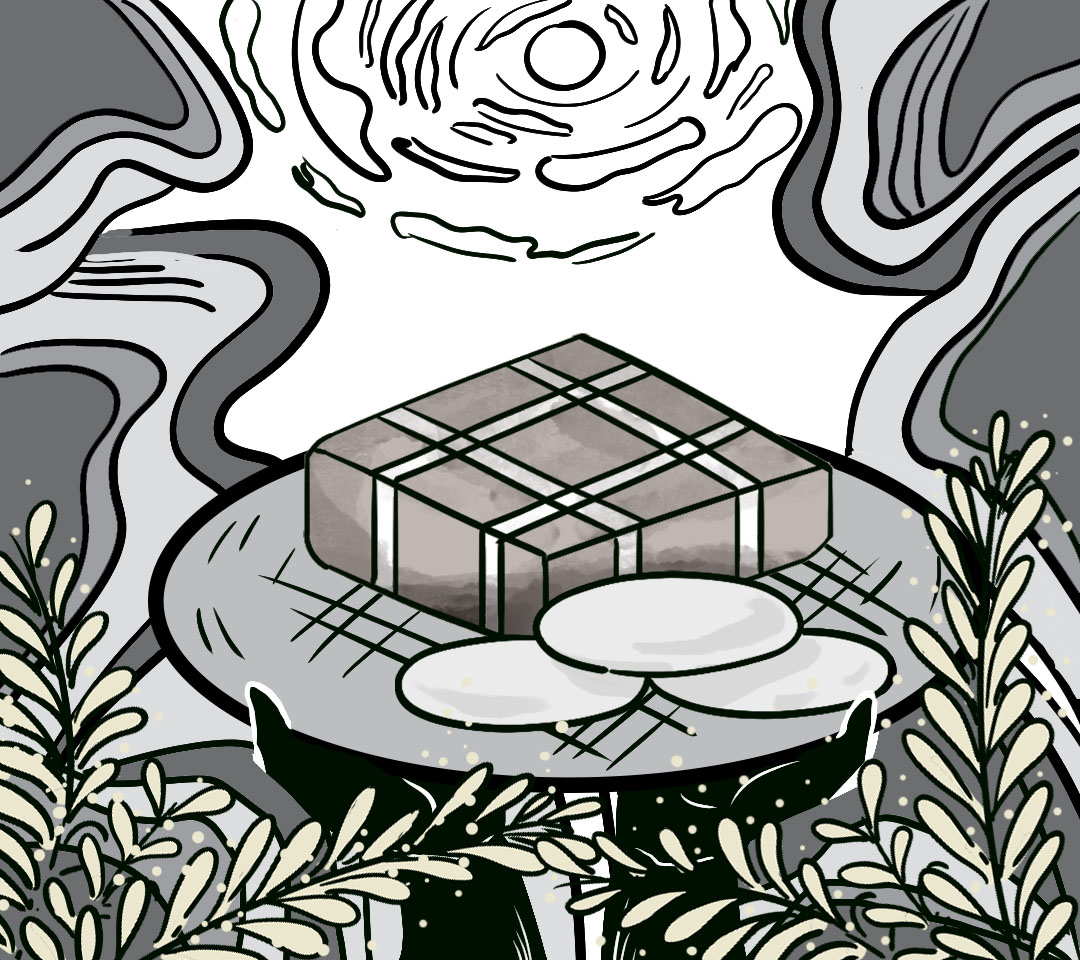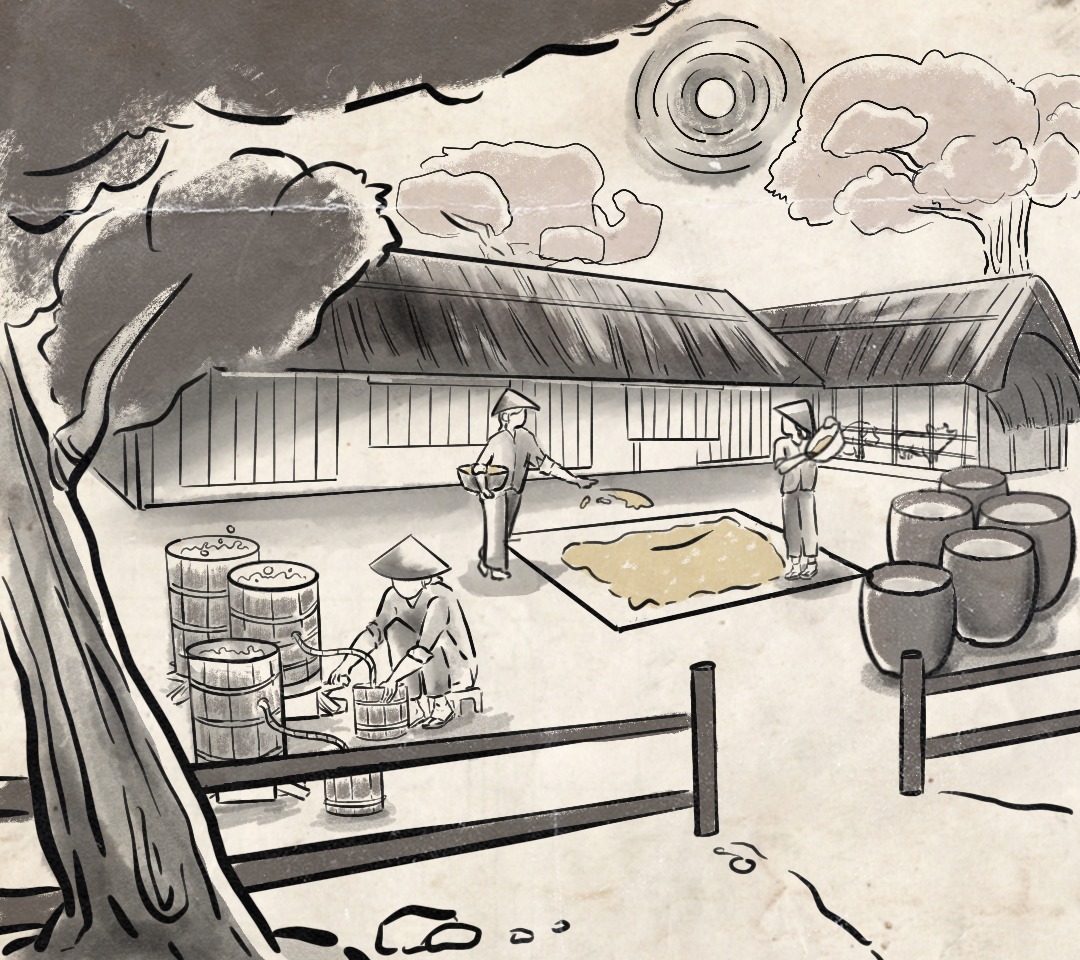Who would believe that a modest grain such as rice could have such a major impact on the world?
Wild rice or ‘Oryza rufipogon’ is estimated to have been around for some 14,000 years. These seeds went on to become the domesticated rice breeds we know today.
Now, rice is one of the world’s five major food crops.
Rice’s domestic life can be traced back to China some 8,200 years ago, in the Chau Giang Valley. These same cultivation techniques are still used today.
According to Chinese legend, Shen Nong, also known as Emperor Viem, taught people how to cultivate and make ploughs. He was also the first to perform the Tich Dien ceremony held after harvest and the Ha Dien ceremony held before planting.
Rice cultivation began to spread across Asia, quickly finding its way to Vietnam.
According to ‘First Farmers: The Origins of Agricultural Societies’ by Peter Bellwood, rice cultivation really entered the culinary zeitgeist in Vietnam 3,500 years ago.
Vietnam became the world’s third-largest rice exporter in 2018, with the Mekong Delta becoming one of the world’s largest rice granaries.

“Nothing in Heaven and Earth is more precious than rice,” Tiet Lieu was told in a dream. Following this advice, he offered the King an unparalleled dish. The tradition of offering Banh Chung and Banh Giay to ancestors on Lunar New Year is maintained to this day.
There’s a Vietnamese saying that goes, “Without alcohol, rituals lose their character.” In essence, holidays, funerals, and shows of filial piety lacking a glass of alcohol are considered seriously lacking.
The history of liquor
It’s hard to say when alcohol-based on distilled rice liquor first appeared. Many documents, however, claim rice liquor has been around for thousands of years.
Cam Vu Commune in Cam Giang District is one of Vietnam’s most famous craft alcohol-producing locations. Back when rice liquor started, however, it was known as Phu Loc.
Following a viscous war, Phu Loc, was created, and celebrated its prosperous future with making alcohol and farming pigs. During the Nguyen Dynasty (date), the whole Phu Loc village was allowed to brew alcohol, gaining a name for itself as the village of ruou.

King Minh Mang’s (ruled from XXXX-XXXX) is also said to be a lover of liquor.
On the Day of Trung Duong (September 9 of the lunar calendar), the king went to visit Ngu Binh Mountain, where hundreds of officials celebrated the ceremony of life. Once the ceremony was finished, time came to party.
The King personally poured the chamomile liquor. One cup was poured for each prince, relative, and general. Emperor Minh Manh said, “This alcohol is very good, I drank one cup, two times to finish. Phan Huy Thuc is also a drinker, has he frowned?”
Some documents also revealed that the king left a recipe for his own Minh Mang prescription to increase the virility of men.
The specific formula of this infamous male tonic, however, disappeared from the documentation of the Imperial Medical Office during the Nguyen Dynasty.
As today, the liquor is still an indispensable element in the Vietnamese customs and traditions, associated with important community activities such as New Year’s Day, festivals, funerals, weddings, etc. Religious festivals at the temple, without alcohol in the ceremony, will be considered shortcomings.
All of these customs and traditions actually lead to one question, Is the alcohol is served as a way of to saying thanks to heaven, earth and the precious Ngoc Thuc?
Perhaps so, as alcohol is an indispensable element on the offering tray to the gods and the ancestral altar.
On the table, a glass of alcohol appears as a glue to connect between person to person, allowing people open their hearts. Food help us feel full in the belly, but the alcohol is needed to experience every drop, full of both bitter and sweet, like life itself.
STORIES
